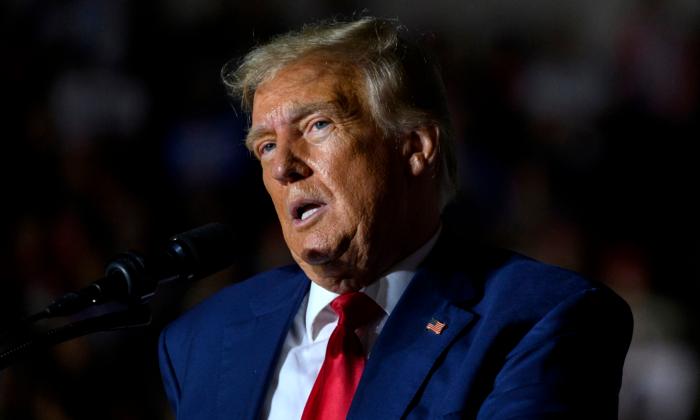American big tech companies, including Google, Amazon, and Microsoft, are supporting Chinese surveillance firms that have been blacklisted by the United States over human rights violations, according to a new report.
Last October, the commerce department put 28 Chinese public security bureaus and companies—including some of China’s top artificial intelligence (AI) startups and video surveillance company Hikvision—on an economic blacklist over their role in aiding the repression and surveillance of Uyghur Muslims in the northwestern region of Xinjiang. The designation bars U.S. firms from doing business with those companies without a license from the department.
An estimated more than 1 million Uyghur and other Muslim minorities are detained in internment camps in Xinjiang as part of the regime’s purported fight against “extremism.” Outside the detention centers, the regime’s inhabitants are heavily monitored by a dense network of AI-enhanced surveillance cameras and security checkpoints.
“Through providing essential web services to these controversial companies, U.S. firms are playing a part in the proliferation of highly invasive surveillance products that have the potential to undermine human rights around the world,” the report said.
It said that Google is providing content delivery network and analytics services to Hikvision and data recovery firm Xiamen Meiya Pico Information Co, both on the U.S. blacklist. Amazon, it added, provides web hosting for Hikvision and surveillance equipment maker Zhejiang Dahua Technology.
Meanwhile, Microsoft supplies email hosting for SenseTime and Megvii, two of China’s most valuable AI startups, the report said.
The researchers named several other U.S. tech companies that provide website hosting, authentication, and related services, including Digicert, Stackpath, Symantec, Let’s Encrypt, Entrust, and GeoTrust.
Facebook and Twitter were also identified as providing content delivery network services for Hikvision.
The Epoch Times reached out to all the U.S. companies named in the report for comment, but did not receive a reply by press time.
The researchers said they were able to identify the U.S. firms by using a combination of public tools, analyzing source codes of the websites of the blacklisted companies, as well as traffic of those sites.
“Despite the Trump administration’s efforts to decouple the American and Chinese technology sectors, the continued presence of American companies in more discreet settings shows that cooperation between the two remains,” the report said.
On Friday, the commerce department added eight Chinese companies and one Chinese government body to the U.S. trade blacklist over the treatment of Uyghur Muslims. The department that day also added 24 Chinese companies and government institutions to the list over their links to weapons development for the Chinese military.





